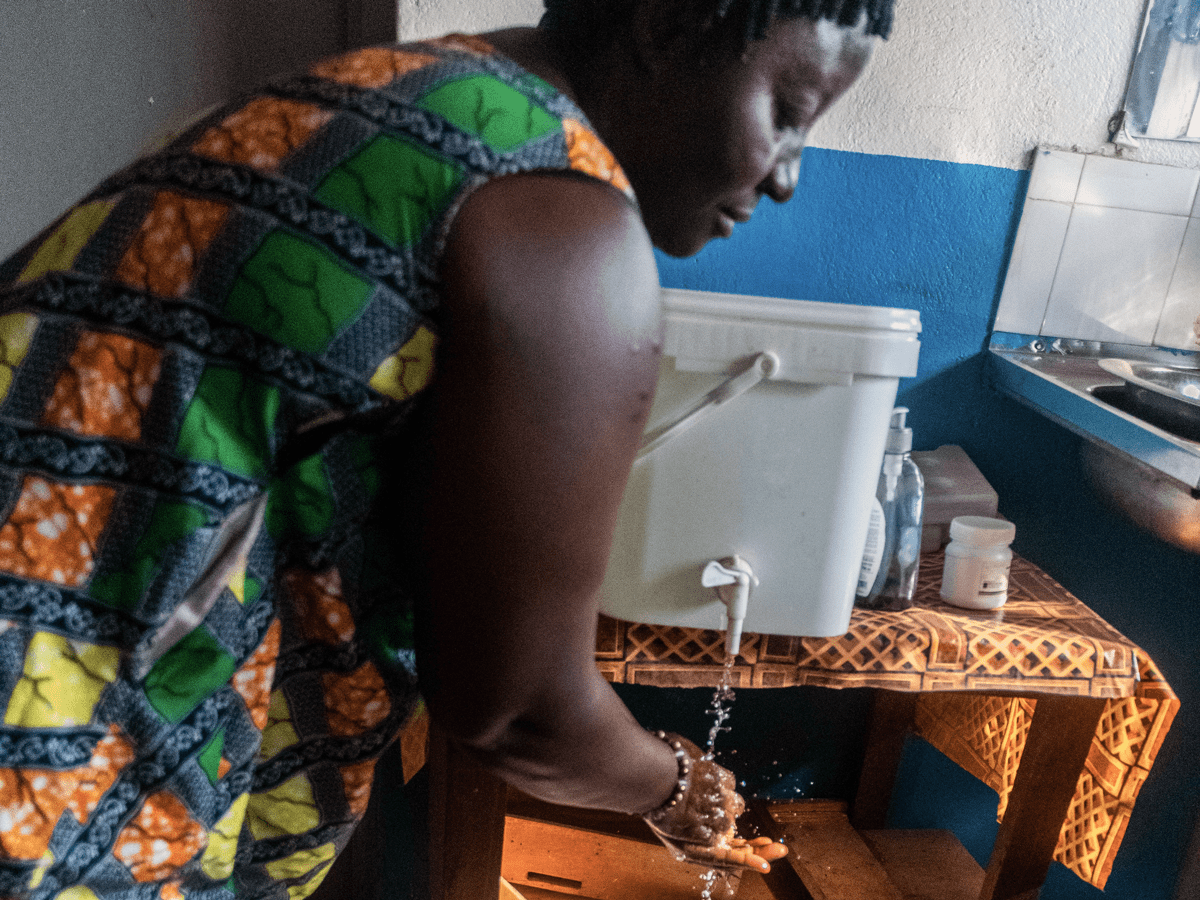Rondinelli I, Dougherty G, Madevu-Matson CA, Toure M, Akinjeji A, Ogongo I, Kolwaite A, Weiss J, Gleason B, Lyman MM, Benya H, Rabkin M.
Int J Qual Health Care. 2020 Feb 13. pii: mzz137. doi: 10.1093/intqhc/mzz137. [Epub ahead of print]
Abstract
QUALITY CHALLENGE:
The Sierra Leone (SL) Ministry of Health and Sanitation’s National Infection Prevention and Control Unit (NIPCU) launched National Infection and Prevention Control (IPC) Policy and Guidelines in 2015, but a 2017 assessment found suboptimal compliance with standards on environmental cleanliness (EC), waste disposal (WD) and personal protective equipment (PPE) use.
METHODS:
ICAP at Columbia University (ICAP), NIPCU and the Centers for Disease Control and Prevention (CDC) designed and implemented a Rapid Improvement Model (RIM) quality improvement (QI) initiative with a compressed timeframe of 6 months to improve EC, WD and PPE at eight purposively selected health facilities (HFs). Targets were collaboratively developed, and a 37-item checklist was designed to monitor performance. HF teams received QI training and weekly coaching and convened monthly to review progress and exchange best practices. At the final learning session, a “harvest package” of the most effective ideas and tools was developed for use at additional HFs.
RESULTS:
The RIM resulted in marked improvement in WD and EC performance and modest improvement in PPE. Aggregate compliance for the 37 indicators increased from 67 to 96% over the course of 4 months, with all HFs showing improvement. Average PPE compliance improved from 85 to 89%, WD from 63 to 99% and EC from 51 to 99%.
LESSONS LEARNED:
The RIM QIC approach is feasible and effective in SL’s austere health system and led to marked improvement in IPC performance. The best practices are being scaled up and the RIM QIC methodology is being applied to other domains.








